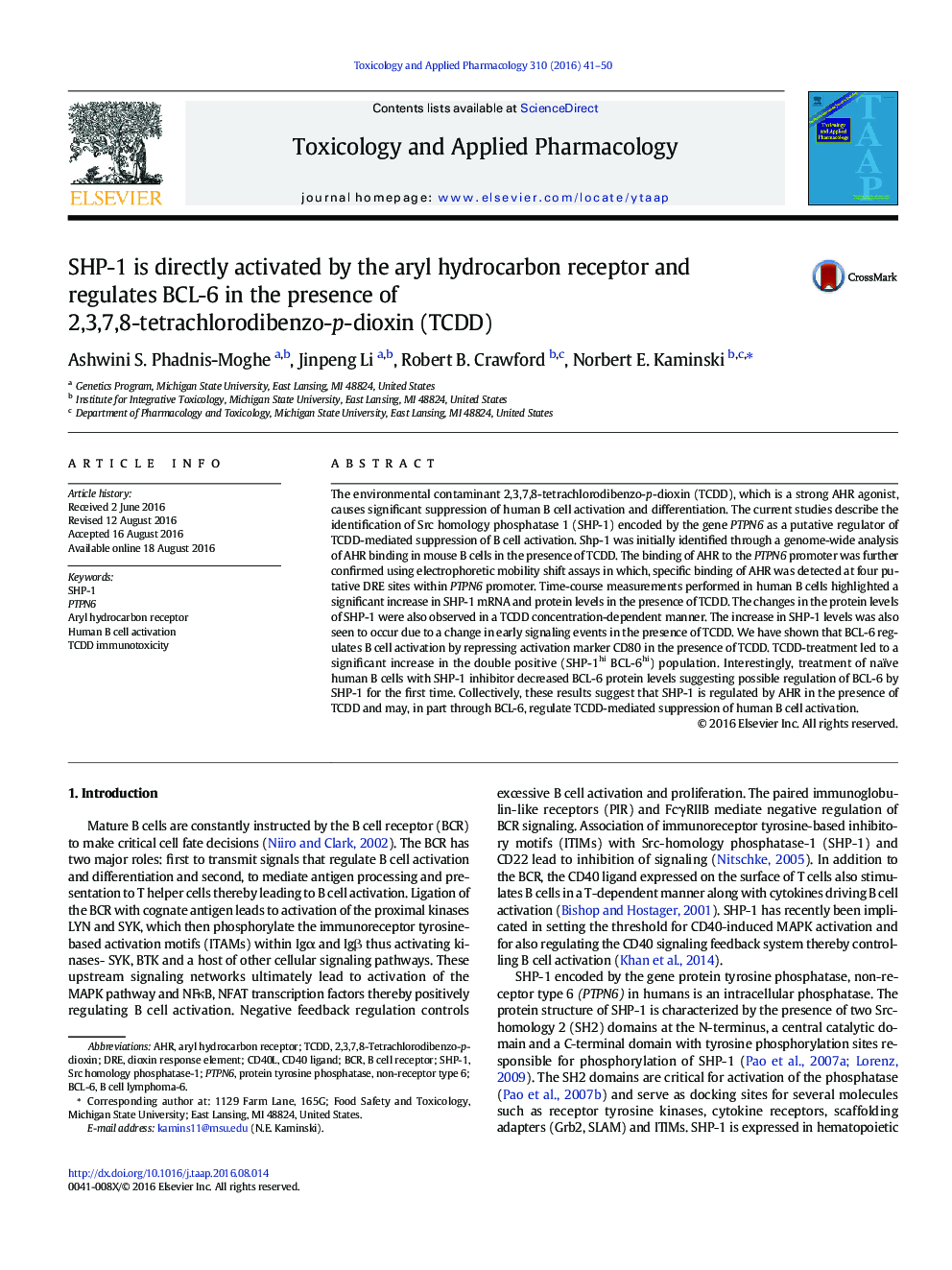| Article ID | Journal | Published Year | Pages | File Type |
|---|---|---|---|---|
| 2567983 | Toxicology and Applied Pharmacology | 2016 | 10 Pages |
•SHP-1 encoded by the gene PTPN6 is directly activated by the AHR.•AHR binds to dioxin response elements within the SHP-1 promoter in a TCDD-inducible manner.•TCDD-mediated increase in SHP-1 levels is observed in primary human B cells.•Higher SHP-1 levels help in maintaining high BCL-6 levels in the presence of TCDD.•In the presence of SHP-1 inhibitor, decreased BCL-6 levels are observed.
The environmental contaminant 2,3,7,8-tetrachlorodibenzo-p-dioxin (TCDD), which is a strong AHR agonist, causes significant suppression of human B cell activation and differentiation. The current studies describe the identification of Src homology phosphatase 1 (SHP-1) encoded by the gene PTPN6 as a putative regulator of TCDD-mediated suppression of B cell activation. Shp-1 was initially identified through a genome-wide analysis of AHR binding in mouse B cells in the presence of TCDD. The binding of AHR to the PTPN6 promoter was further confirmed using electrophoretic mobility shift assays in which, specific binding of AHR was detected at four putative DRE sites within PTPN6 promoter. Time-course measurements performed in human B cells highlighted a significant increase in SHP-1 mRNA and protein levels in the presence of TCDD. The changes in the protein levels of SHP-1 were also observed in a TCDD concentration-dependent manner. The increase in SHP-1 levels was also seen to occur due to a change in early signaling events in the presence of TCDD. We have shown that BCL-6 regulates B cell activation by repressing activation marker CD80 in the presence of TCDD. TCDD-treatment led to a significant increase in the double positive (SHP-1hi BCL-6hi) population. Interestingly, treatment of naïve human B cells with SHP-1 inhibitor decreased BCL-6 protein levels suggesting possible regulation of BCL-6 by SHP-1 for the first time. Collectively, these results suggest that SHP-1 is regulated by AHR in the presence of TCDD and may, in part through BCL-6, regulate TCDD-mediated suppression of human B cell activation.
